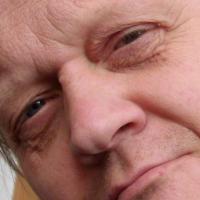Esperanto Fonetika Alfabeto?
de qwertz, 25 ianuarie 2009
Contribuții/Mesaje: 14
Limbă: English
qwertz (Arată profil) 25 ianuarie 2009, 20:42:50
does there excist an special Esperanto Fonetika Alfabeto for spelling letters at the telephone? Similar like this NATO alphabet?
cheers,
Hispanio (Arată profil) 25 ianuarie 2009, 20:44:51
Espi (Arată profil) 25 ianuarie 2009, 21:16:21
qwertz:Saluton,For example I know this one:
does there excist an special Esperanto Fonetika Alfabeto for spelling letters at the telephone? Similar like this NATO alphabet?
cheers,
Asfalto, Barbaro, Centimetro, Ĉefo, Doktoro, Elemento, Fabriko, Gumo, Ĝirafo, Hotelo, Ĥaoso, Insekto, Jubileo, Ĵurnalo, Kilogramo, Legendo, Maŝino, Naturo, Omnibuso, Papero, Rekordo, Salato, Ŝilingo, Triumfo, Universo, Universo-hoko, Vulkano, Zinko
[fontoj: vortaro germana-Esperanto de E.-D. Krause kaj url=http://www.esperantopol.de/Esperanto_Sprachkurs_Polizei.pdf]tie ĉi[/url] sur la lasta paĝo]
Amike
Espi
qwertz (Arată profil) 25 ianuarie 2009, 21:42:53
Espi:Dankon! That's interesting!
For example I know this one:
Asfalto, Barbaro, Centimetro, Ĉefo, Doktoro, Elemento, Fabriko, Gumo, Ĝirafo, Hotelo, Ĥaoso, Insekto, Jubileo, Ĵurnalo, Kilogramo, Legendo, Maŝino, Naturo, Omnibuso, Papero, Rekordo, Salato, Ŝilingo, Triumfo, Universo, Universo-hoko, Vulkano, Zinko
[fontoj: vortaro germana-Esperanto de E.-D. Krause kaj url=http://www.esperantopol.de/Esperanto_Sprachkurs_Polizei.pdf]tie ĉi[/url] sur la lasta paĝo]
Amike
Espi
de: Ein Sprachkurs für Anfänger
en: An language course for beginners.
de: Esperanto für Polizeibeamte
en: Esperanto for police authority (EU)
Is esperanto use somewhere by the European police?
amike,
DaDane (Arată profil) 26 ianuarie 2009, 13:38:02
Espi:I don't like your exampleqwertz:Saluton,For example I know this one:
does there excist an special Esperanto Fonetika Alfabeto for spelling letters at the telephone? Similar like this NATO alphabet?
cheers,
Asfalto, Barbaro, Centimetro, Ĉefo, Doktoro, Elemento, Fabriko, Gumo, Ĝirafo, Hotelo, Ĥaoso, Insekto, Jubileo, Ĵurnalo, Kilogramo, Legendo, Maŝino, Naturo, Omnibuso, Papero, Rekordo, Salato, Ŝilingo, Triumfo, Universo, Universo-hoko, Vulkano, Zinko
[fontoj: vortaro germana-Esperanto de E.-D. Krause kaj url=http://www.esperantopol.de/Esperanto_Sprachkurs_Polizei.pdf]tie ĉi[/url] sur la lasta paĝo]
Amike
Espi
One of the points of the NATO alfabet is that it should be understood even if people don't know it before hand.
And it works. T has the word Tango. Let's say I have problem hearing your voice clearly. So I hear it as D. But there's no such word as Dango.
But in your example it isn't quite so. Doesn't e.g. Zinko and Sxinko sounds quite close?
erinja (Arată profil) 26 ianuarie 2009, 15:44:51
However, I saw one I liked better in Waringhien's "Lingvo kaj Vivo". I can't replicate it here, I'm at work and don't have the book at hand. But I'll try to remember to come back and type it in when I get home today.
qwertz (Arată profil) 26 ianuarie 2009, 21:09:13
DaDane:May be there is: Dingo. It's an wildlife australian dog. May be the aussies outback pronouncation could be capable to let it sound similar like tango?
One of the points of the NATO alfabet is that it should be understood even if people don't know it before hand.
And it works. T has the word Tango. Let's say I have problem hearing your voice clearly. So I hear it as D. But there's no such word as Dango.
Oŝo-Jabe (Arată profil) 27 ianuarie 2009, 01:06:15
It puts the letter being represented in the accented syllable (so these words are mostly 2-syllable) and tries to use everyday words.
Akvo, Baldaŭ, Cedro, Ĉirkaŭ, Dolĉa, Eĥo, Fajfi, Golfo, Ĝis, Hejme, Ĥoro, Iĝi, Jaĥto, Ĵuri, Korpo, Lingvo, Morgaŭ, Nokto, Ofte, Pelvo, Riĉa, Sankta, Ŝaŭmi, Tempo, Uzi, Ŭa-ŭa, Vespo, Zorgi
erinja (Arată profil) 27 ianuarie 2009, 02:14:49
Anna, Bastiano, Cezaro, Ĉefeĉ, Davido, Eduardo, Frederiko, Gastono, Ĝakomo, Hamleto, Ĥoreb, Izaako, Jozefo, Ĵaval, Kolumbo, Ludoviko, Moseo, Natalia, Oktavo, Petro, Quirinal, Rajmondo, Sofia, Ŝimŝon, Tomaso, Ursula, Ŭestlando, Valentina, William, Xerxes, Yelland, Zamenhof.
ceigered (Arată profil) 27 ianuarie 2009, 04:13:11
qwertz:I don't recall any broad-Australian speakers saying 'dingo' like 'tango' or visa versa. Maybe the pronunciation might be a tad more nasal, but definitely not enough to confuse the two. Maybe if a guy from the outback moved to South Africa and tried to copy the accent poorly it could be a problemDaDane:May be there is: Dingo. It's an wildlife australian dog. May be the aussies outback pronouncation could be capable to let it sound similar like tango?
One of the points of the NATO alfabet is that it should be understood even if people don't know it before hand.
And it works. T has the word Tango. Let's say I have problem hearing your voice clearly. So I hear it as D. But there's no such word as Dango.
 .
.Trivia: Dingoes are actually an introduced subspecies of Asian dog, but they were there before the Dutch (so no one really knows how on earth they got there)



